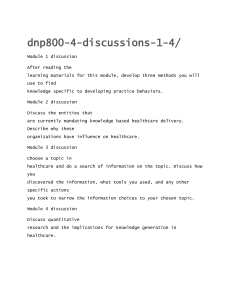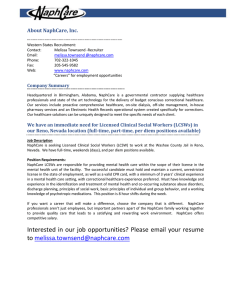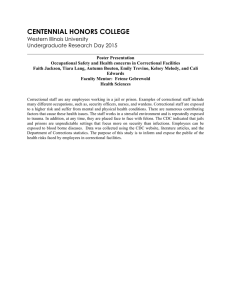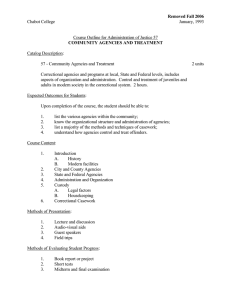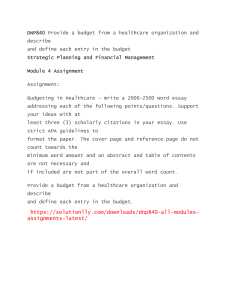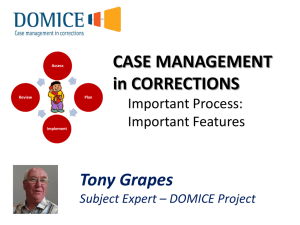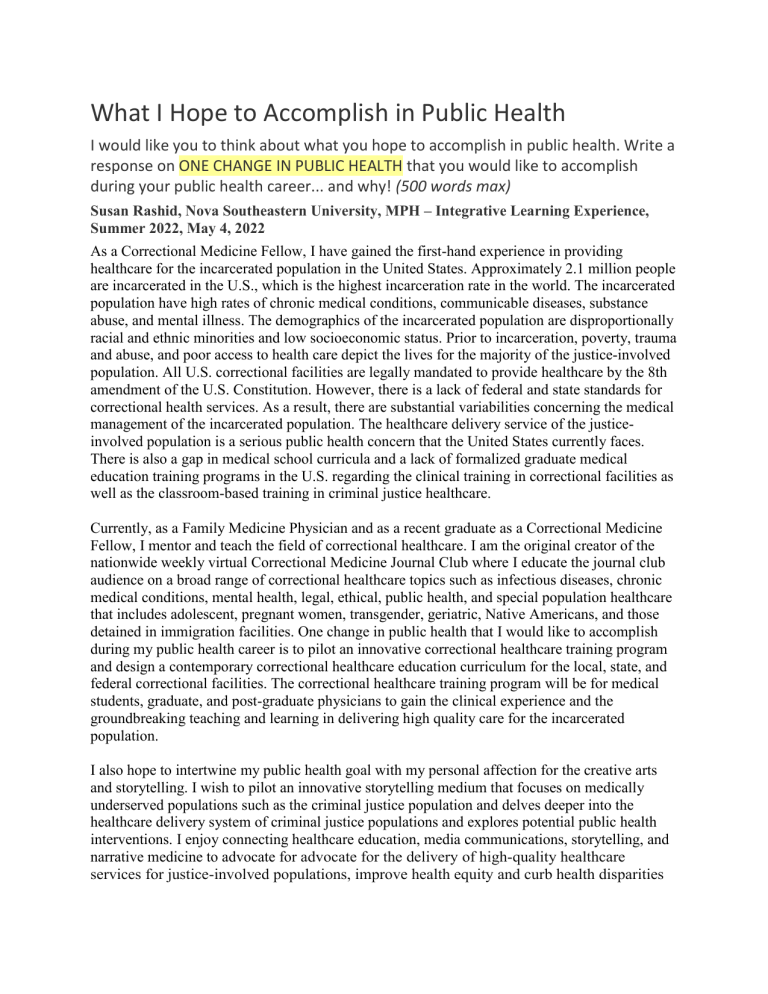
What I Hope to Accomplish in Public Health I would like you to think about what you hope to accomplish in public health. Write a response on ONE CHANGE IN PUBLIC HEALTH that you would like to accomplish during your public health career... and why! (500 words max) Susan Rashid, Nova Southeastern University, MPH – Integrative Learning Experience, Summer 2022, May 4, 2022 As a Correctional Medicine Fellow, I have gained the first-hand experience in providing healthcare for the incarcerated population in the United States. Approximately 2.1 million people are incarcerated in the U.S., which is the highest incarceration rate in the world. The incarcerated population have high rates of chronic medical conditions, communicable diseases, substance abuse, and mental illness. The demographics of the incarcerated population are disproportionally racial and ethnic minorities and low socioeconomic status. Prior to incarceration, poverty, trauma and abuse, and poor access to health care depict the lives for the majority of the justice-involved population. All U.S. correctional facilities are legally mandated to provide healthcare by the 8th amendment of the U.S. Constitution. However, there is a lack of federal and state standards for correctional health services. As a result, there are substantial variabilities concerning the medical management of the incarcerated population. The healthcare delivery service of the justiceinvolved population is a serious public health concern that the United States currently faces. There is also a gap in medical school curricula and a lack of formalized graduate medical education training programs in the U.S. regarding the clinical training in correctional facilities as well as the classroom-based training in criminal justice healthcare. Currently, as a Family Medicine Physician and as a recent graduate as a Correctional Medicine Fellow, I mentor and teach the field of correctional healthcare. I am the original creator of the nationwide weekly virtual Correctional Medicine Journal Club where I educate the journal club audience on a broad range of correctional healthcare topics such as infectious diseases, chronic medical conditions, mental health, legal, ethical, public health, and special population healthcare that includes adolescent, pregnant women, transgender, geriatric, Native Americans, and those detained in immigration facilities. One change in public health that I would like to accomplish during my public health career is to pilot an innovative correctional healthcare training program and design a contemporary correctional healthcare education curriculum for the local, state, and federal correctional facilities. The correctional healthcare training program will be for medical students, graduate, and post-graduate physicians to gain the clinical experience and the groundbreaking teaching and learning in delivering high quality care for the incarcerated population. I also hope to intertwine my public health goal with my personal affection for the creative arts and storytelling. I wish to pilot an innovative storytelling medium that focuses on medically underserved populations such as the criminal justice population and delves deeper into the healthcare delivery system of criminal justice populations and explores potential public health interventions. I enjoy connecting healthcare education, media communications, storytelling, and narrative medicine to advocate for advocate for the delivery of high-quality healthcare services for justice-involved populations, improve health equity and curb health disparities in the correctional setting, and encourage healthcare providers in sharing their professional and personal stories while delivering healthcare services to the incarcerated population.
